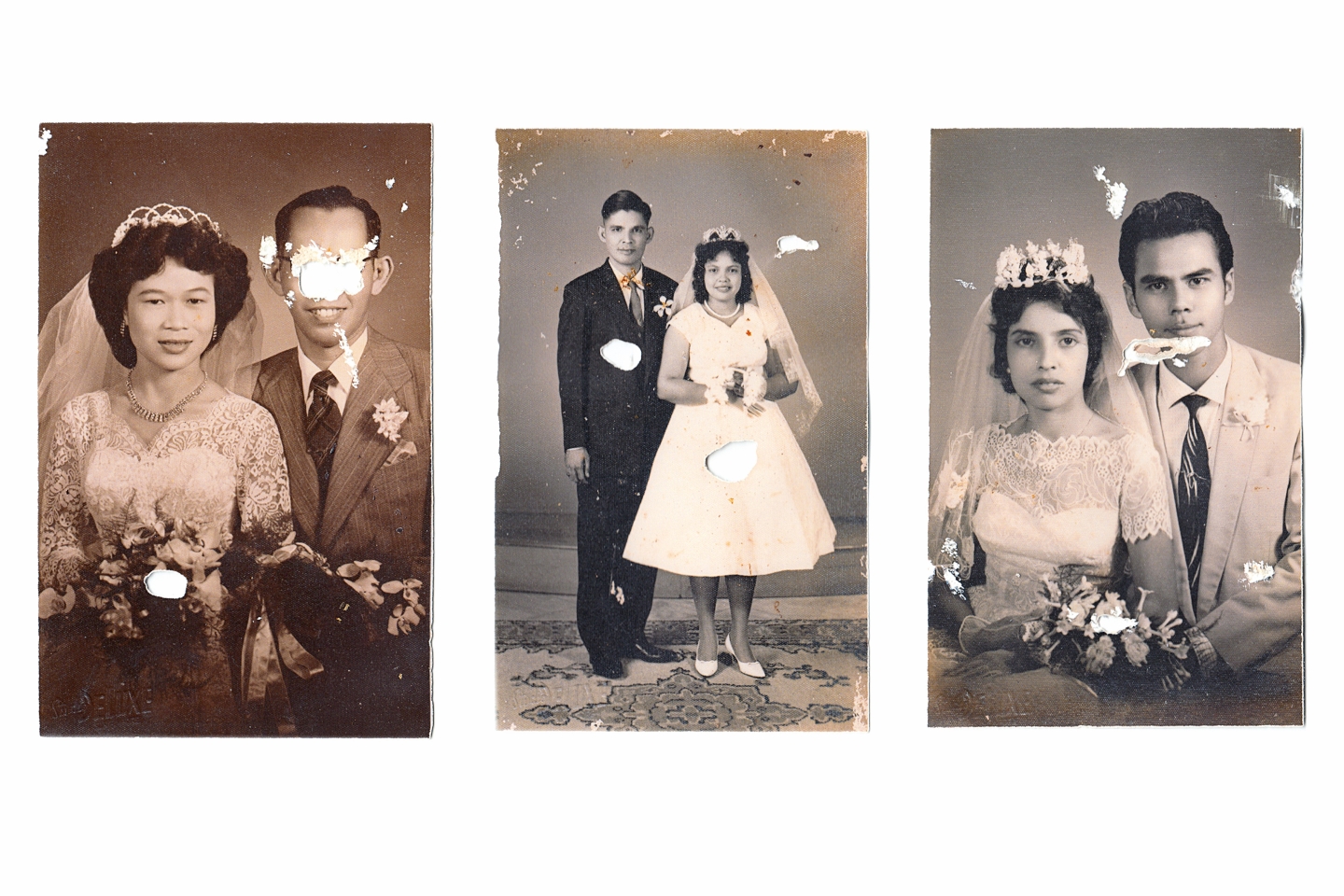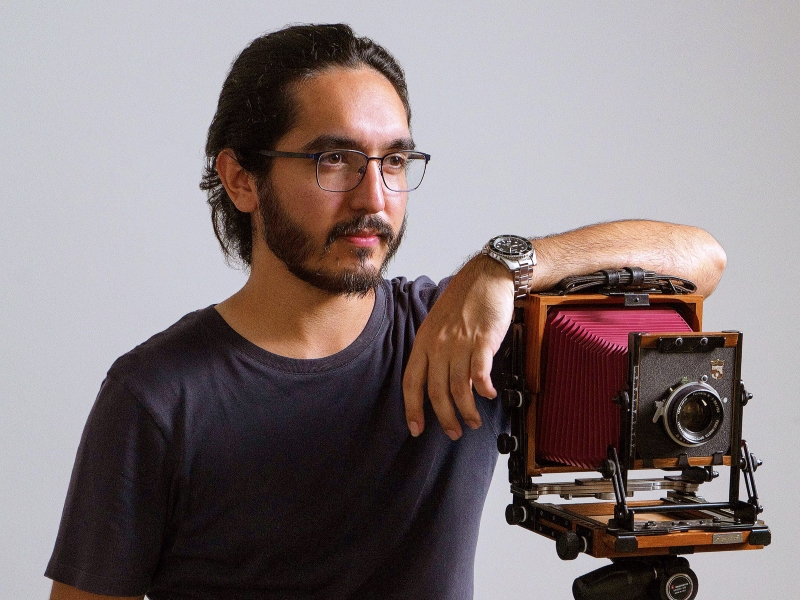
Prints that were once part of a family wedding album, ruined over time by silverfish (All photos: Antoine Loncle)
While the foreword to this exhibition by Antoine Loncle carries a light-hearted tone, it delves into a profound reflection on the identity of a Serani in Malaysia: “Several days after my birth, my mother received a letter from the Eurasian Association of Penang. It congratulated her and informed her that, due to my father’s French heritage, I was to be considered an ‘A-class’ Serani, seeing as my blood had a higher percentage of European ancestry, that I was superior to most other Malaysian-Eurasians.”
A close friend of Loncle, on the other hand, experienced rejection from the association on account of the father’s Indian heritage.
“In recent years, there has been tension within the Penang Eurasian community. One that centres on the definitions of the Serani identity and who can be truly referred to as such. As a people who proudly regard themselves as multiracial, when does an individual of mixed heritage become too diverse to be included in the community? Who has the right to define these identities and on what basis?” So goes the introduction to his show.
For Loncle, a portrait is one of the most powerful images you can create. “In portraiture, you can tell a whole story with a single shot and this is why the project is largely based around portraits.
“The Serani are a very diverse group of individuals, by definition. Their mixed heritage means there are a variety of ways someone can look but still identify as one. The project asks viewers to engage with this and realise visually that there are many varied ‘faces’ representing the individuals,” he explains in an email interview with Options.
loncle_1.jpg

Loncle has always felt a bit of an outsider in his community. His family is quite involved but he never connected fully to the culture, other than through some family obligations. Initially, the project revolved around his quest to comprehend the essence of being Serani. However, as the interviews and photography unfolded, he gradually came to realise it was more complicated than he thought.
In what ways does this exhibition address the enduring impact of colonialism on the Serani identity, and how does it navigate the delicate balance between tradition and self-identity?
“The Colonial Shadow is something that is often discussed in literature on cultures and people who were once under colonial rule. It is often seen as a sort of intangible presence or ideology in the population that stems from colonial ideas and values. This is not different in Penang.
“The Serani are one tangible outcome of this, being direct descendants of the Portuguese and the local populace. Because of this, there is a lot of emphasis, traditionally, on ‘whiteness’ and heritage. The project’s goal is to ultimately showcase some of these antiquated ideas and present a newer and more inclusive take on who identifies as Serani through different and wider cultural identifiers.”
Loncle wants the show to provoke thought on how we see one another and how inclusive or exclusive our respective communities can be. “For the Seranis, I want to represent their varied and diverse stories and backgrounds.
“As for those outside the community, I hope to get them thinking about cultural identity as a whole and how this project can be seen as a microcosm for the same discussions that are happening in Malaysia.”
'Devil’s Curry: A Photographic Exploration of the Serani Identity by Antoine Loncle' runs until Aug 27 at Hin Bus Depot in George Town. See here for details.
This article first appeared on Aug 21, 2023 in The Edge Malaysia.


